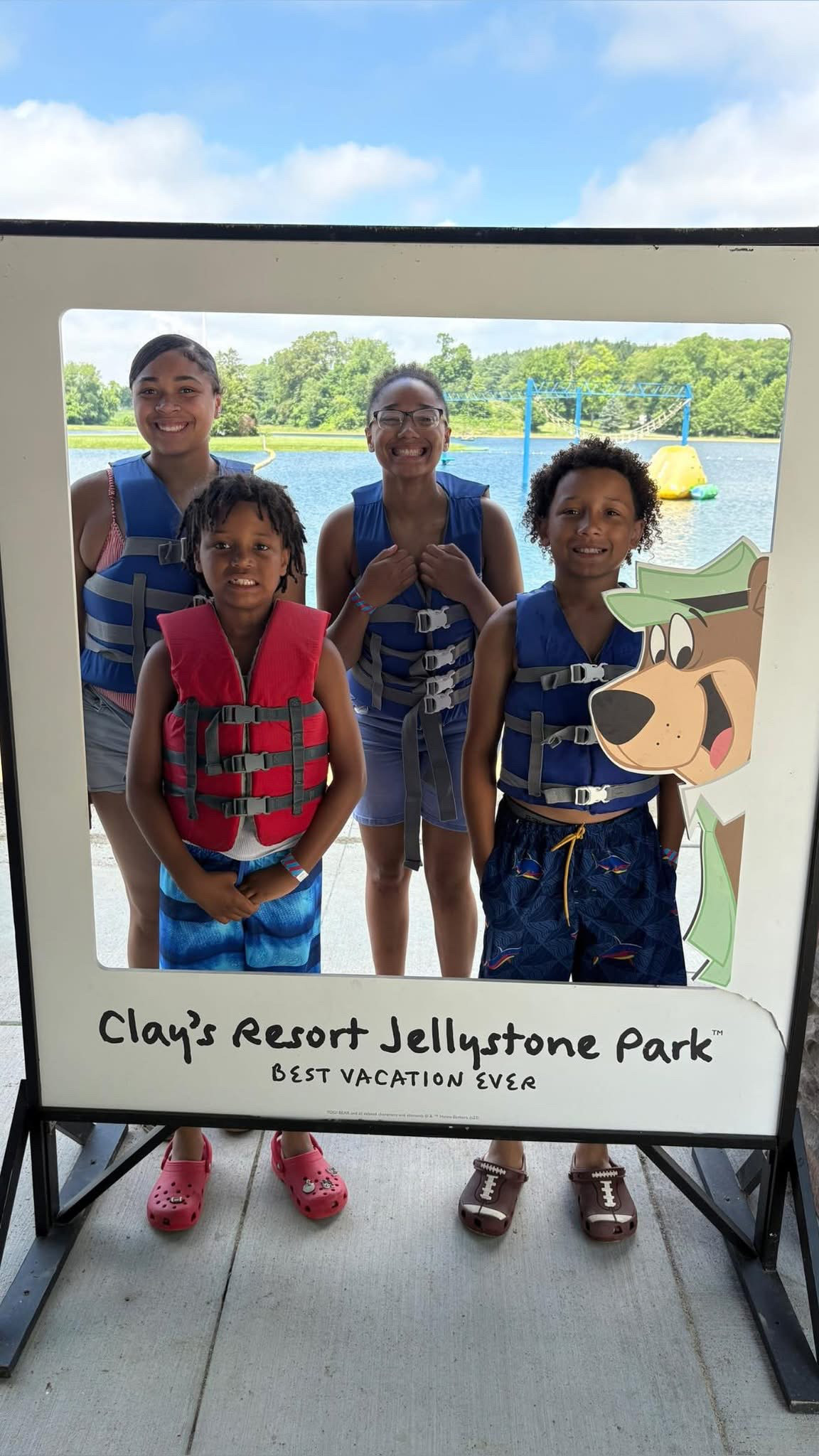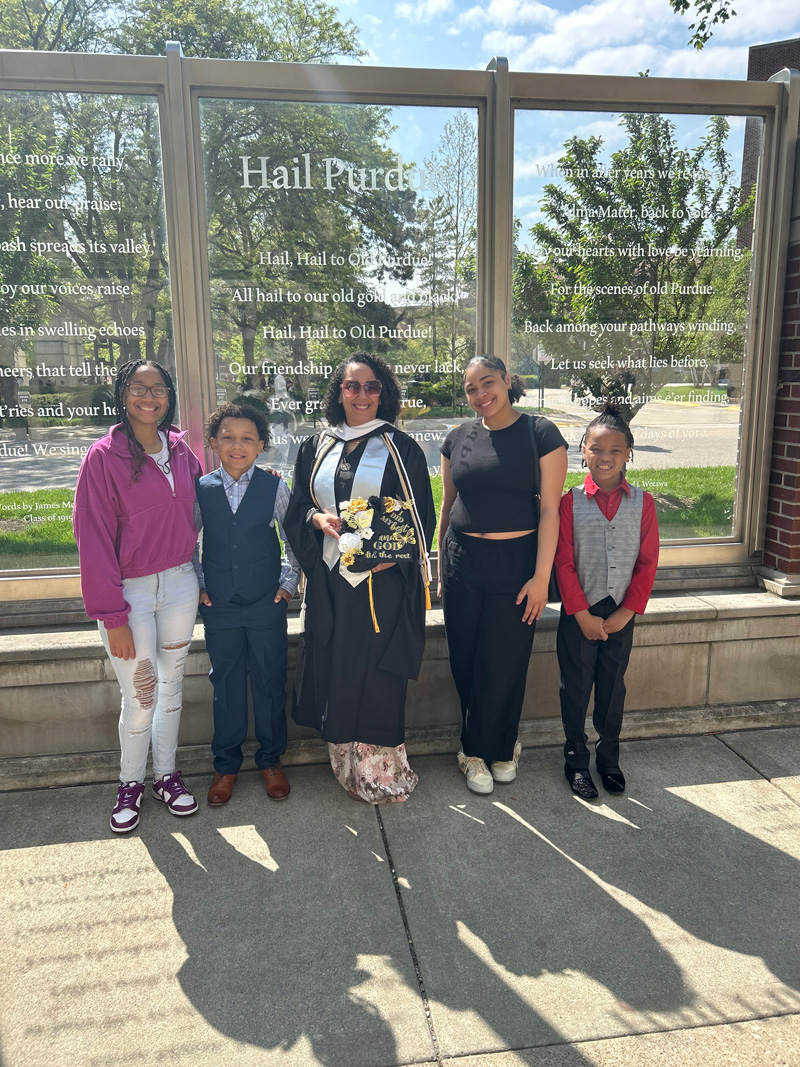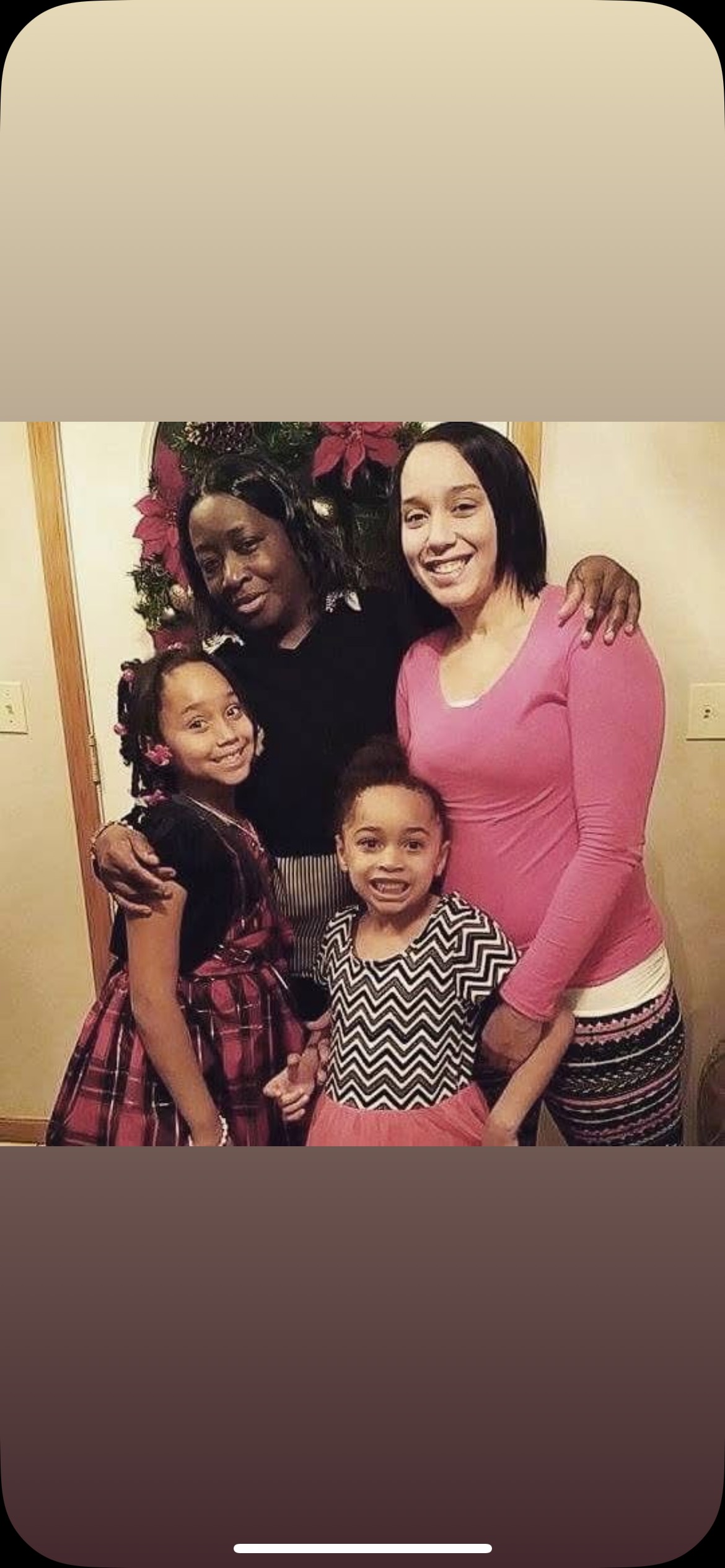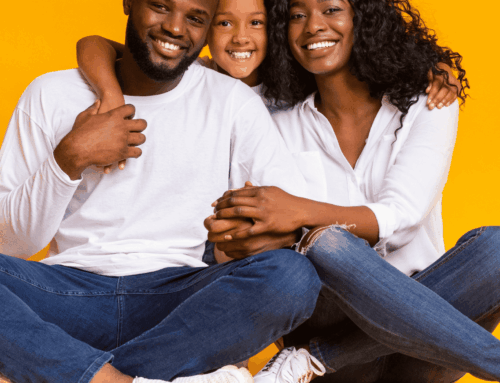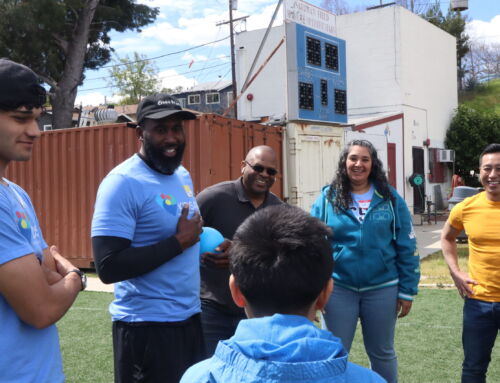Camelia’s story is one of resilience, transformation, and the power of one caring adult. A biracial mother living with a disability and proudly part of the LGBTQIA+ community, Camelia grew up in the foster care system and now lives in the same Stark County neighborhood where her journey began. Today, she gives back as the leader of the county’s backpack giveaway program—a position created specifically for her, in recognition of the leadership and hope she brings to local youth.
But the path to this point wasn’t easy. Camelia entered foster care at just two years old, due to her mother’s struggles with substance use and mental health. Her early years were marked by instability, moving through foster homes without the consistent love and support every child needs. Without a stable family or cultural connection, she felt alone—and angry. She wished she had been placed with families who knew how to do her hair, mixed race or Black couples who could have supported her biracial identity and provided her with resources to achieve her goals. Instead, she struggled with her identity, began using drugs, ran away, and spent time in group homes and juvenile detention. At 16, she became pregnant.
Then something shifted.
Camelia was placed with Ms. Tina Freedman, a strong, nurturing Black woman who became a pivotal figure in her life. Tina made Camelia feel safe, seen, and valued—something she had never felt before. She advocated for her at school, encouraged her dreams, and taught her that she was capable of more than she’d ever been told. Tina didn’t just support Camelia—she helped her see things in her she always knew were there. To this day, they remain close. Camelia goes to Tina’s house for Sunday dinners, and Tina even hosted her graduation celebration. In an unexpected twist, they later discovered that Camelia’s father is Tina’s cousin.
Camelia often reflects on how different things might have been if she had been placed in a culturally affirming, loving home like Tina’s earlier in her life. She wishes there had been families who could have cared for her whole identity—people who could have done her hair, helped her navigate being biracial, and believed in her potential from the start. “Why was I only worthy of love and support after I got in trouble and had a baby?” she asks. “Why did the baby deserve a loving home, but I didn’t?”
When she exited the system, she was left to her own devices to find her way in this world. She worked hard to get sober—now proudly two years sober—and spent years in therapy. She says healing didn’t happen until she truly wanted it. “Counseling didn’t work until I got honest with myself and became open to receiving help,” she shares. Her most transformative therapist was a white woman specializing in trauma and addiction. It wasn’t about race—it was about readiness, connection, and trust. Today, she continues to practice self-awareness and use healthy coping strategies. Her relationship with her biological mother remains complex, but they have a stable ongoing relationship now.
Camelia is now in a good place—and determined to pay it forward. Her lived experiences fuel her purpose. She’s passionate about being a role model and advocating for young people, especially those who feel overlooked or misunderstood.
“Nothing is impossible. Even when they tell you it is. You can and will do it—if you set your mind to it.”
Camelia’s journey is proof of what’s possible when a young person has even one loving, supportive adult in their corner.
Help be that connection. Visit embrace.kidsave.org to make a difference.
